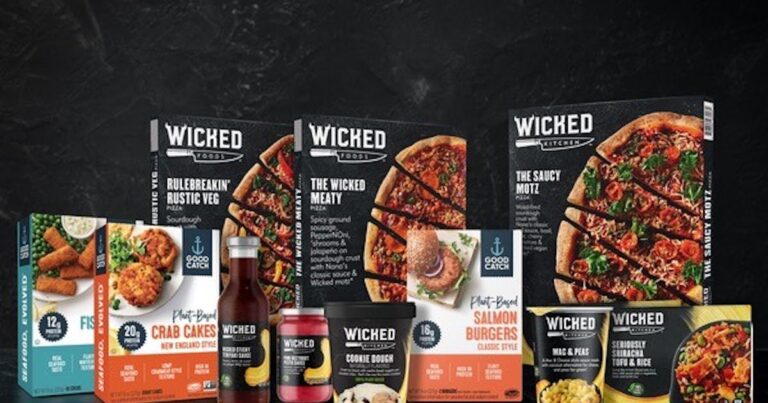Last year, Wicked Kitchen CEO Pete Speranza predicted the plant-based food industry would face consolidation as sales slowed and buzz faded.
Last week, the Minneapolis-based company was acquired by a Colorado startup looking to consolidate its many plant-based brands.
Ahimsa acquired Wicked and its plant-based seafood brands Good Catch and Current Foods for an undisclosed amount to “stabilize and shape the new landscape of the plant-based industry,” CEO Matt Thalman said.
“Ahimsa is a long-term investor because they're looking to remove animals from the food system,” Speranza says. “You need patience in this space, so Ahimsa is a good investor.”
Sales of plant-based foods fell last year for the first time since the survey began in 2017, halting a meteoric rise that had been fueled by intense speculation by investors who overestimated how quickly consumers would replace meat with newer lookalikes.
The category, which has seen explosive growth driven by plant-based milks and brands like Beyond Meat and Impossible Foods, is plateauing at about $8 billion in annual sales.
“For the market to grow sustainably, it needs to offer products that better meet key consumer drivers of taste, price and convenience while providing a clear proposition that entices consumers to switch,” the Good Food Institute said.
The industry is also facing a new backlash against ultra-processed foods: Recent studies have found that people who follow vegan diets high in ultra-processed foods, including plant-based meat substitutes, have a higher risk of heart attack, while whole-food, plant-based diets outperform meat-based diets in terms of longevity and health.
“Recognizing the role of food processing is important to ensure positive outcomes. [cardiovascular] The results were the same even when using a plant-based diet,” the study authors wrote.
The Plant Based Foods Association said the industry has come a long way in a short period of time and is quickly adapting to consumer preferences.
“Consumers are looking for more variety and that will lead to improved consumer sentiment,” said Julie Emmett, the group's vice president of market development.
Wicked offers dozens of different products, including ice cream, pizza and burrito bowls, which Speranza said helps differentiate Wicked at a time when other brands are focusing on individual items like burgers.
“By expanding across categories, we become a brand that people can rely on and trust,” he said. “We're better positioned to be wherever our consumers are.”
Wicked was founded in 2018 by brothers Derek and Chad Sarno, who are chefs, and first gained widespread distribution in the U.K. The brand is now sold in Target, Walmart and other stores across the U.S.
Plant-based foods and drinks now account for about 4% of total food sales in the U.S., according to industry reports, with some categories doing much better than others, particularly plant-based milks and creamers, bars and baked goods. Wicked's best-selling product in the U.K. is its chocolate chip cookies.
“It's delicious, so I hope people will pick it up and try it without hesitation,” Speranza says.
Under new ownership, Wicked will be able to focus on long-term growth rather than reacting to short-term contraction in the industry.
“I think it's going to be a long journey because consumer adoption isn't going to happen all at once,” Speranza said. “It's going to be about strengthening the companies that are in this space for the long term.”
The Ahimsa Foundation and its various offshoots have been “low-profile” plant-based investors for many years, and the opportunity to partner with other brands they may own or acquire is a win for the category and will “put the company in a better position” financially, he added.
But despite Ahimsa's focus on being animal-free, Speranza said he wants Wicked to stand on its own as a food brand, rather than a niche or “alternative” product.
“This is about everyday food for ordinary people, it's not about plants,” he said. “We'd rather compete with the whole market.”


